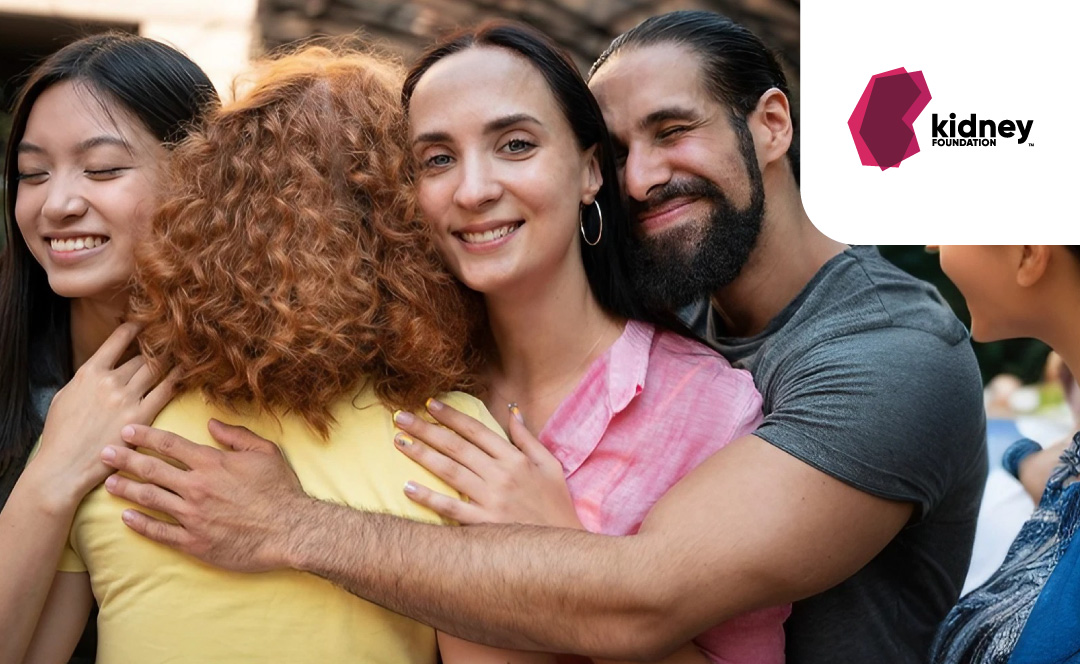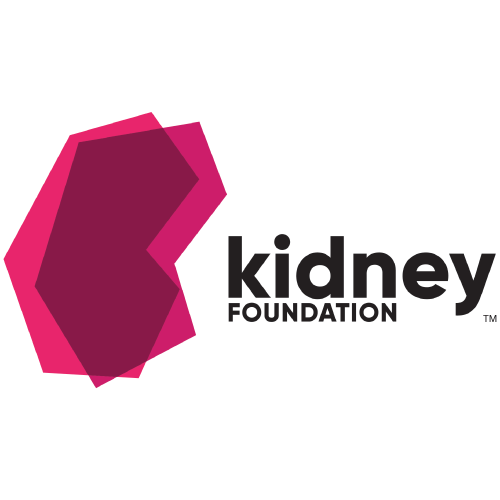The Kidney Foundation of Canada

The Kidney Foundation of Canada
Since 1990 Federated Health Charities has donated more than $2,131,042 to the Kidney Foundation of Canada
Federated Health Charities, a leading workforce giving campaign within the Ontario Public Service, is really playing a key role putting important messaging before people who need to hear it. What’s unique about working with the Federated Health Charities is that the volunteers are enthusiastic; they’re passionate. It’s not something they feel they have to do, it’s something they want to do.
Craig Lindsay, Director of Programs, Kidney Foundation
Click to see video transcript
[Start of recorded material 00:00:01]
Jason Lumb: Client, Kidney Foundation
I was 45 years old when I suddenly became very sick. The doctors ran a bunch of tests on me, and they came back and told me my kidneys had failed. I was scared. I was sick. So I was unconscious for a lot of it.
Craig Lindsay: Director of Programs, Kidney Foundation
Many people live with kidney disease their entire life. There is no cure. A transplant, for example, while an excellent treatment is not a cure. If you live with kidney disease, you need to find a way to live with it well for the rest of your life.
Jason Lumb: Client, Kidney Foundation
In my case one of the biggest challenges I had when I was first diagnosed – the two years following while I was on dialysis and everything, I ended up having to go through 15 surgeries. It seemed like I was recovering from one surgery and getting ready for another surgery. So I went through a two-year period where it was just highs and lows and I was trying to get strong enough so I could do the next surgery, recover, get strong enough….it was just a circle.
Craig Lindsay: Director of Programs, Kidney Foundation
Everything’s expensive and I think living well with kidney disease involves making dietary choices that lead to greater expenses.
The Kidney Foundation is there when people struggle at the end of the month to make decisions between pay for medication, feeding their family, or putting gas in their car to get to dialysis.
My hope is that working with Federated Health, all people will ever need from the Kidney Foundation is doing our Risk Assessment Tool, or knowing where to find us if they need us.
Jason Lumb: Client, Kidney Foundation
Without the help of the Kidney Foundation, I wouldn’t have met a lot of wonderful people living with the same disease that I have. And, the support that I get from everybody with the Kidney Foundation.
Craig Lindsay: Director of Programs, Kidney Foundation
The Ontario Public Service is really playing a key role putting important messaging before people who need to hear it. What’s unique about working with the Ontario Public Service is that the volunteers are enthusiastic; they’re passionate. It’s not something they feel they have to do, it’s something they want to do.
Jason Lumb: Client, Kidney Foundation
There’s a saying that there’s strength in numbers and definitely with the Kidney Foundation and all the kidney patients that are involved with the Kidney Foundation, there certainly is strength in numbers.
Craig Lindsay: Director of Programs, Kidney Foundation
I would say to those who currently support the Kidney Foundation, be confident that your dollars are having impact. They’re having impact today, and it’s having impact tomorrow. It’s supporting research that’s giving hope to those maybe who aren’t even diagnosed yet.
Jason Lumb: Client, Kidney Foundation
To people who’ve already donated to this charity, I just want to say, ‘thank you’! Thank you for giving me the chance to grow as a person. Thank you for giving me my family. Thank you for giving me my life back.
[End of recorded material 00:02:48]
The Kidney Foundation of Canada has worked for over 60 years to eliminate the burden of kidney disease. Through education, patient support, and innovative research, the organization strives to improve prevention and treatment – and ultimately, find a cure.
Kidneys play a critical role in your health. They filter blood, remove waste, help regulate blood pressure, and produce red blood cells. When kidneys are damaged, they do not heal. While certain diseases target the kidneys directly, conditions like diabetes and high blood pressure are among the leading causes of kidney failure.
As many as two million Canadians have or are at risk of chronic kidney disease, and most are unaware of it. Misuse or excessive use of non-prescription medications, particularly painkillers, can damage kidneys. The Kidney Foundation urges Canadians to consult a doctor or pharmacist before taking over-the-counter medications.
For people living with kidney failure, dialysis or transplant is often the only option. Lisa, diagnosed with diabetes at age four, learned in 1995 that she had kidney disease and required peritoneal dialysis – a treatment she performed four times a day while working full-time. “We didn’t have a life,” Lisa recalls. After a transplant in 1997, anti-rejection medication led to cancer. Through every challenge, the Kidney Foundation was there:
“Without the Kidney Foundation, I don’t think I’d be as strong as I am today. It’s almost like a second family.”
Federated Health Charities has supported the Kidney Foundation since 1990. Donations fund research, advocacy, and programs that provide critical emotional, practical, and financial support for people living with kidney disease. Your contribution ensures individuals and families receive the help they need.
Learn more at kidney.ca and donate through Federated Health Charities to make a difference today.
Click on the button below to make a donation to The Kidney Foundation through Federated Health Charities




Charitable Registration No.
85413 5480 RR0001
Contact Us
647-278-9861
federated.health.charities@ontario.ca
Address
315 Front St. West, 5th Floor
Toronto, ON
M7A 0B8
Follow us
Charitable Registration No.
85413 5480 RR0001

Contact Us
647-278-9861
federated.health.charities@ontario.ca
Address
315 Front St. West, 5th Floor
Toronto, ON
M7A 0B8
Charitable Registration No.
85413 5480 RR0001
Follow us
© 2026 | Federated Health Charities. All rights reserved. Privacy policy. Designed by Cristhian Arevalo Leon.

